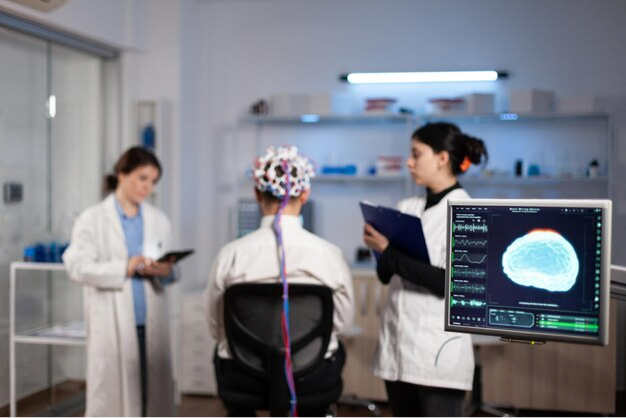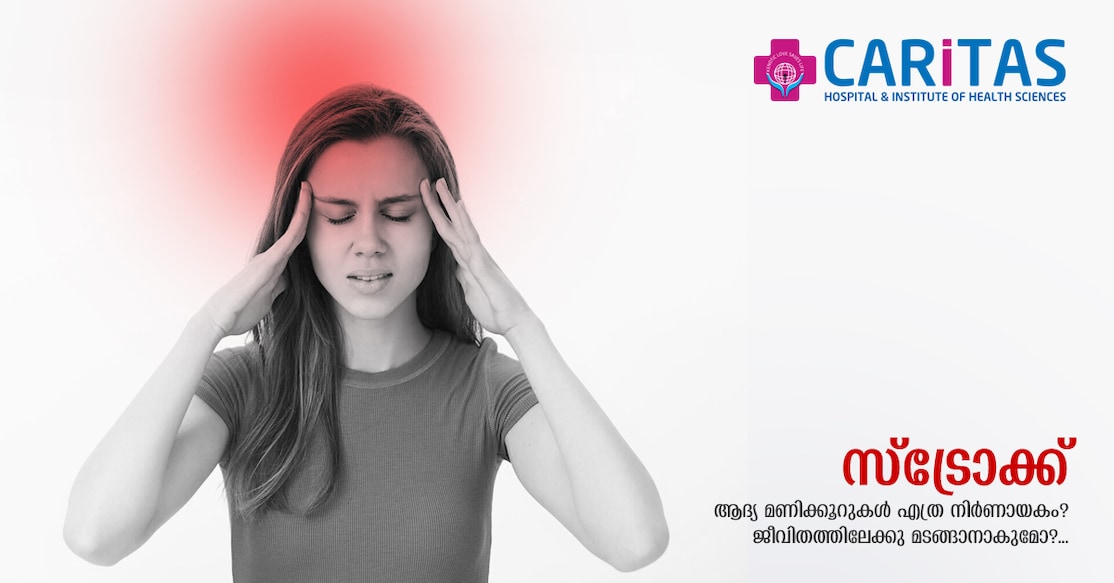
Caritas Neuro Sciences
Advancements in Neuroimaging Techniques
December 2023

Stroke is a term that only becomes real when it happens to someone close to us. As a serious medical condition that affects blood flow to the brain, it’s often a shock when a stroke happens, but knowing the signs and acting quickly can make a big difference.
Strokes are no longer limited to older adults. More and more people under 50 are experiencing strokes, a trend doctors call "Young Stroke." Our fast-paced lifestyles may be to blame. Unhealthy eating, relying on fast food, skipping exercise, and stressful jobs can all increase your risk. Most strokes are caused by blood clots, not burst blood vessels, and diabetes is a major risk factor. While smoking used to be a risk factor (because it raises blood pressure), fewer people smoking may be hiding the rise in blood clot strokes.
When it comes to stroke, every minute counts. Getting to a hospital with stroke specialists is crucial. The first few hours, especially the very first hour, are golden. The quicker you get treatment, the better your chances of avoiding serious problems like paralysis or even death. Don't waste time at a clinic that can't handle strokes – go straight to a hospital! The recommended window for treatment is within four and a half hours, but always aim for the fastest possible care
Stroke symptoms can vary depending on the location of the blockage. A sudden, severe headache (especially before a burst blood vessel stroke), nausea, facial drooping, numbness or weakness in an arm or leg are all potential signs. If one side of your body becomes completely limp, your hands or feet swell up suddenly, your speech becomes slurred, you lose your balance, or you have trouble with daily tasks like eating or using a key, see a doctor right away. Even a bump on the head can damage blood vessels and lead to a stroke, so take any head injury seriously.
Your age and how quickly you receive treatment affect your recovery from a stroke. Early intervention is key. If it's not a burst blood vessel stroke, doctors can give you medication to dissolve the clot quickly (there's a small risk of bleeding with this treatment). With early treatment, more than half of stroke patients can make a full recovery with few lasting problems.
If it takes longer to get treatment, doctors will use special scans to see where the blockage is. Depending on the situation, they might use advanced techniques to remove the clot, place a stent in a major artery, or fix a weak spot in a blood vessel wall (called an aneurysm) to prevent it from bursting.
Physiotherapy is crucial for regaining movement in limbs affected by a stroke. You can see significant improvements within the first month, and most people do well within three months. You'll also need medication to control blood pressure and diabetes, improve blood flow, and prevent future clots. How well you do in physiotherapy depends on your commitment and your caregiver's support to the exercises.
Getting enough sleep is vital for brain health. Aim for 7-8 hours of sleep each night. The blue light from phones and computers can disrupt your sleep hormone, melatonin. Make sure your bedroom is dark and relaxing before bed. Exercise is also important for managing diabetes, weight, blood pressure, and keeping your nervous system healthy – all important for preventing and recovering from stroke.
Caritas Hospital in Central Travancore has over 60 years of experience treating strokes. We were the first hospital in Kottayam to be accredited for providing high-quality care (NABH).
Our Stroke Care Team includes a neurologist, neurosurgeon, interventional neuro-radiologist, and neuropsychiatrist. They're all available in the emergency department around the clock to give you the specialised care you need as soon as possible. Our Neuro Intensive Unit has 19 beds specifically equipped for stroke patients.
Caritas also treats other brain problems like epilepsy, tremors, sleep apnea, and Parkinson's disease. We have a Sleep Lab to diagnose sleep disorders and special equipment to monitor your brain activity and heart. Our advanced Parkinson's treatments aim to stop the disease from getting worse, similar to how we treat strokes. Rehabilitation is a big part of recovery at Caritas, helping you get back to your daily life as quickly as possible.
Our Neurology Department has a special clinic for children with brain conditions, open twice a week. For complex cases we can even do brain surgery while the patient is awake! This "awake craniotomy" allows doctors to remove tumours or perform other procedures with minimal risk and better patient outcomes. The rehab unit is well-equipped for occupational therapy and physiotherapy, tailored to each patient's needs to help them regain independence and return to their daily activities.
Remember: Stroke is a serious medical condition, but with early diagnosis and proper treatment, many people can make a full recovery. The key is to recognize the warning signs, act quickly, and seek medical attention from a qualified healthcare facility like Caritas Hospital. We are here to provide you with the expert care and support you need throughout your journey to recovery.
Caritas Hospital Stroke Helpline Number: +91 9496555800